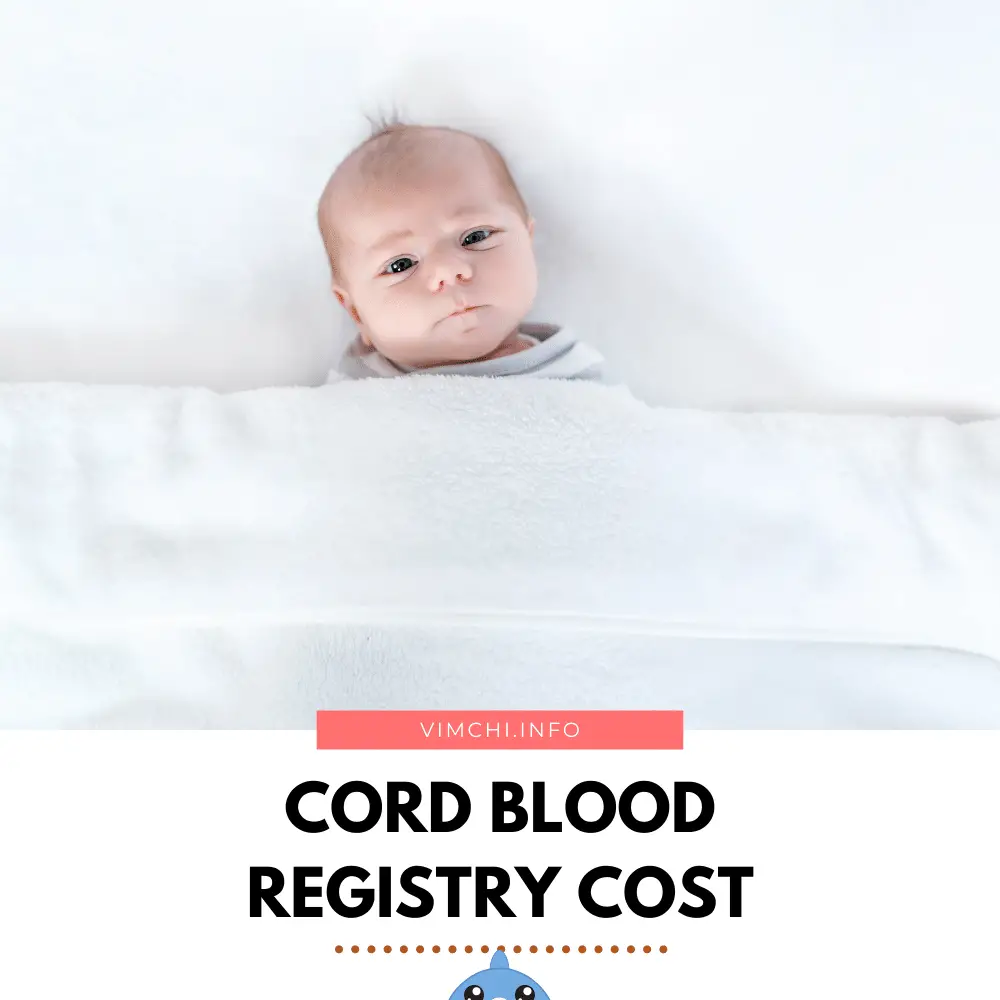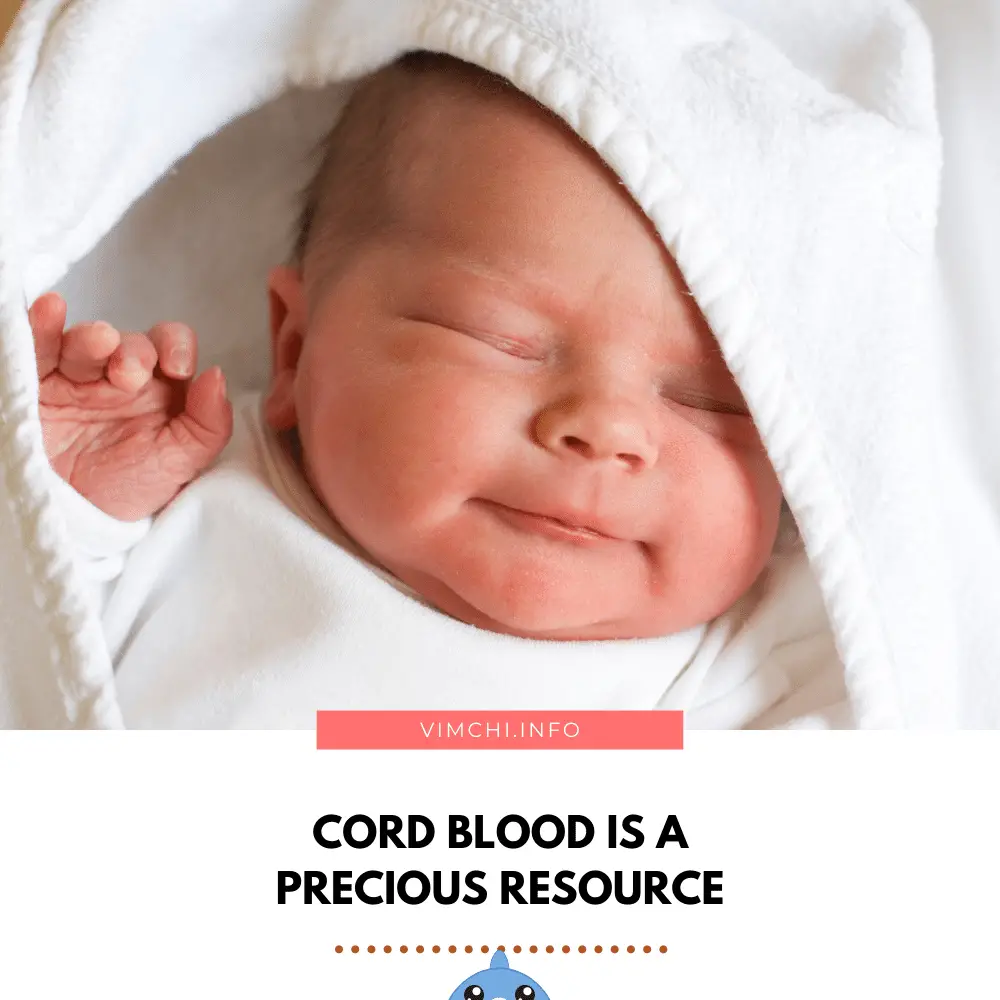As an expectant mother, you have various financial decisions to make. One of them is to either throw your baby’s cord blood or save it? If you save it, how much does the cord blood registry cost?

With many cord blood uses and scientists are still uncovering things, cord blood has become a hot commodity.
A newborn’s umbilical cord is rich in stem cells that can help in treating dozens of disorders, like lymphoma, anemia, and leukemia.
This cord blood is helpful and beneficial. If you choose to donate it, you don’t need to look for a cord blood registry.
But if you opt to save your child’s cord blood, you need to search for the right cord blood registry.
To save the cord blood, you need to pay for the cord blood bank a storage fee.
By choosing a private cord blood banking, you can access it in case one of your family members might need it in the future.
Now, the question is how much will it cost you to save the cord blood of your newborn?
How Much Does Cord Blood Registry Cost and Is It Worth It?
The storage fee is quite expensive.
It depends on the bank where you choose to save the cord blood.

The initial fee can run from $500 to $2,500. Then, you have to pay a yearly storage fee that can run from $100 to $300 a year.
The amount mentioned doesn’t include the overall cost of pregnancy, giving birth, and starting a fund for your child.
Some private banks may waive all fees. But you need to meet their criteria to qualify for the savings.
The savings can vary from one bank to another.
However, if you choose to donate it to a public cord blood bank, then you don’t have to pay anything.
Cord blood is a precious resource.
Unfortunately, it’s just thrown away. The majority of cord blood is discarded.
That’s because not all mothers know that cord blood can offer a life-saving treatment for many people.
Saving cord blood is worth it. But it still depends on your situation.
Now, if you choose to save it, will your insurance cover the overall cost?
Is Cord Blood Banking Covered by Insurance?

As mentioned, the cost of saving cord blood can be quite expensive. But you don’t want to waste your child’s cord blood.
And if you are thinking of saving it because you or one of your family members might need it in the future, then you might consider a cord blood registry.
Cord blood banking, per se, can be covered by your health insurance. It is eligible for pre-tax dollars from your health savings account.
If it is a part of proven treatment for a certain condition, the overall cost can be covered by a flexible spending account.
There are several cases that medical insurance that will cover cord blood banking.
For instance, if the cord blood is used immediately to treat a brother or a sister’s cancer and save his/her life, then it is a proven treatment. Ergo, health insurance would cover the overall cost.
Unfortunately, not all cases can be covered by health insurance.
If you choose to preserve the cord blood for your family’s future, then no health insurance will cover the cost of cord blood banking.
It’s disappointing, especially if you want to preserve your baby’s cord blood because a certain condition runs in the family.
Health insurance doesn’t, yet, cover the cost of experimental treatments. Thus, any FDA-approved clinical trials will not be covered, even if the outcome is favorable.
FDA hasn’t fully approved standard clinical treatments with the use of cord tissue.
In addition to health insurance, cord blood banking may be tax-deductible. You can deduct the overall cost of banking your child’s cord blood, especially if the medical expenses exceed 10 percent of your income.
Then again, it must show that cord blood is a proven treatment for an imminent or existing condition.
But don’t despair because things are changing now. There are bills that Congress has introduced to make cord blood banking a medical expenditure.
As more and more studies are conducted, health insurance might cover the overall cost of cord blood banking in the future. The need to store cord blood privately will continue.
Hopefully, Congress will take action.
Do Doctors Charge to Collect Cord Blood?
It depends. If you are donating the cord blood for public cord blood, then everything is free.
Your doctor won’t charge you for it. Instead, the public cord blood bank will pay for all the costs related to cord blood collection.
Because the cord blood is collected at delivery, you must decide before the delivery whether or not you want to bank the cord blood.
Talk to your doctor about it. The best time to bring this topic is during your second trimester.
In this way, you have ample time to decide and learn about the option that you need.
You might wonder whether or not your doctor is willing to perform a cord blood procedure.
There are some doctors and midwives who aren’t open to this idea. It’s a rare situation.
That’s why you need to know early on so you can plan accordingly. You might consider changing doctor over this issue.
Another thing you should think about is the hospital where you will deliver the baby and collect the cord blood. Some hospitals forged partnerships with public cord blood banks.
These hospitals will collect and deliver the cord blood to a public cord blood bank for free.
If the hospital doesn’t participate in public cord blood banking, don’t throw your child’s cord blood just yet. You can donate it through a mail-in collection kit.
Can Any Mother Donate Cord Blood?

Unfortunately, even donating your child’s cord blood for public cord blood banking is not for everyone.
For instance, if you are expecting twins and you are under 18, you can’t donate your child’s cord blood.
And if you or your baby has a certain medical condition, you may not be eligible to donate cord blood.
Talk to your doctor to know whether or not you can donate it. If you’re not eligible, you can opt for a private bank.
Conclusion
How much does a cord blood registry cost? It depends on the private cord blood bank you choose. The rate can range from $500 to $2,500. Plus, you have to pay for yearly storage fee.
To know more about cord blood banking, visit here.
Speak Now ... Or Forever Hold Your Peace